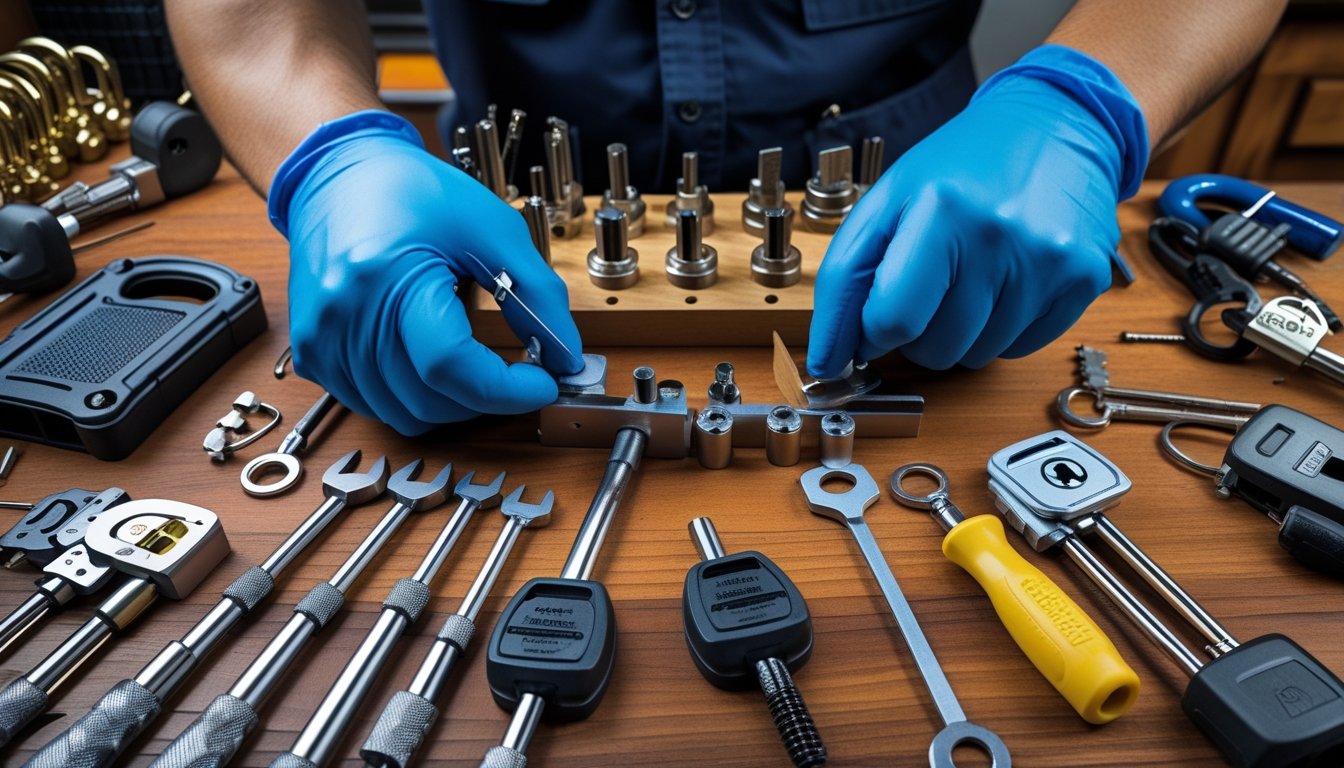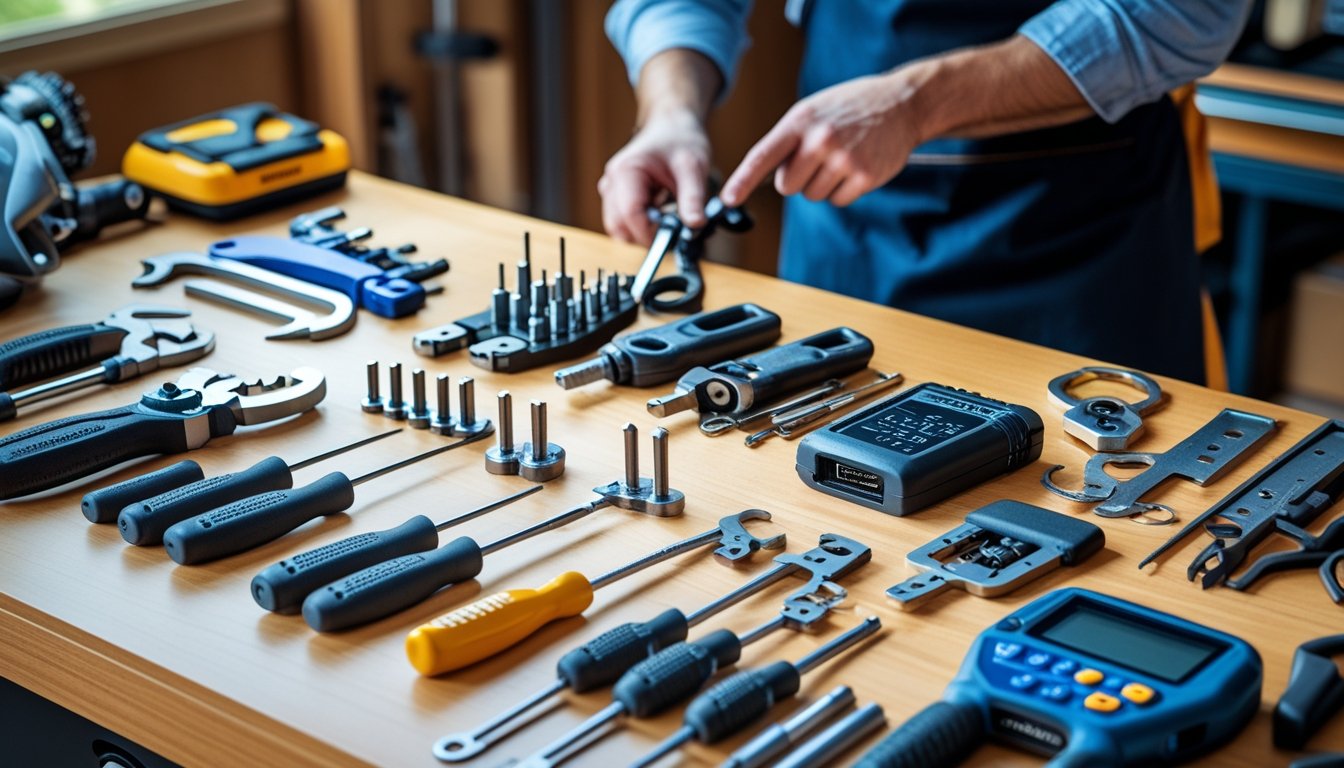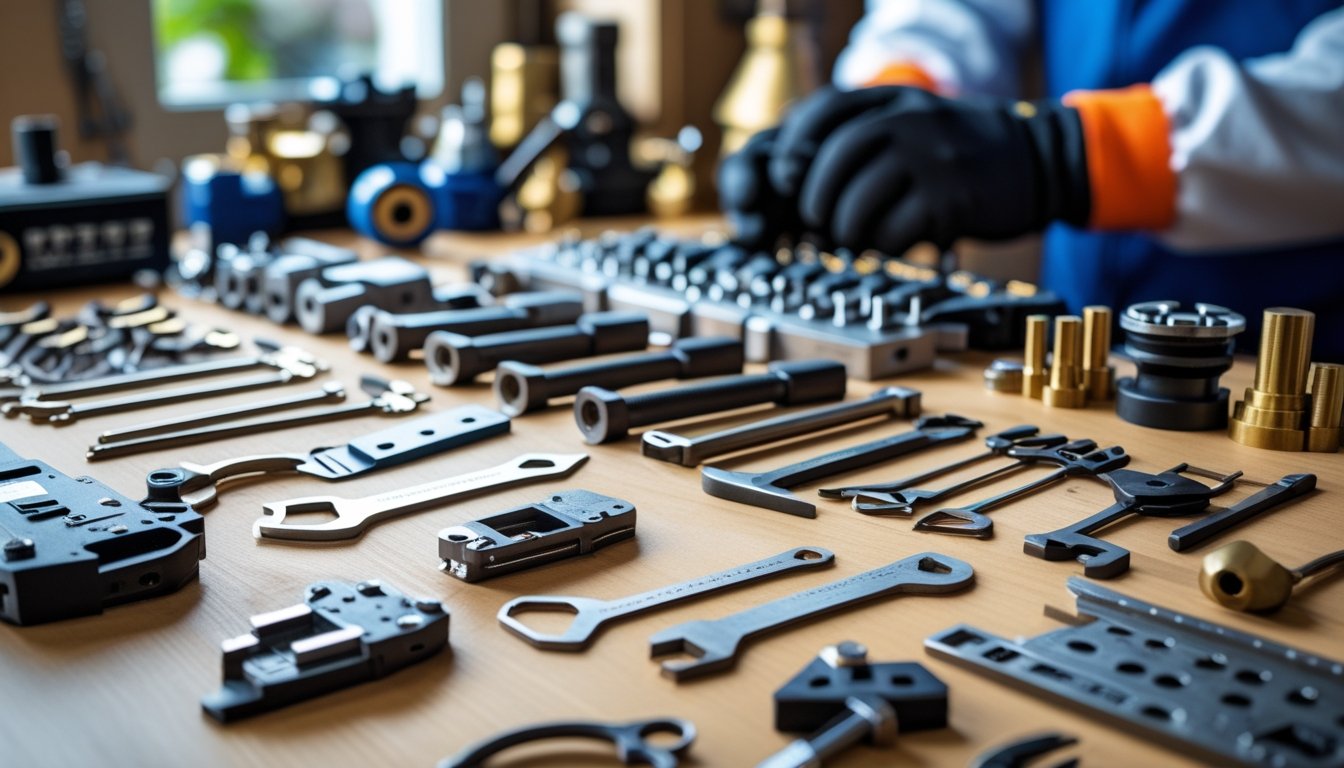Late updated: 07 Sep 2025 10:09
Written by: Elena Prescott
Guide To Choosing Reliable Locksmith Tools: A Professional's Handbook
Choosing the right locksmith tools is the foundation of a successful locksmithing career. It demands careful consideration, from standard toolkits to specialised devices for specific jobs. Our guide seeks to illuminate the path to selecting reliable equipment that meets your needs and enhances your craft. A well-chosen set of tools not only boosts efficiency but also significantly impacts the success of each task we undertake.

For aspiring and seasoned locksmiths alike, understanding the essentials of tool selection is vital. The market offers a staggering array of options, each suited to different lock types and services. Our goal is to demystify this process, enabling us to make informed choices that align with our specific expertise and client needs. Being equipped with the right tools enhances our ability to provide top-notch service and tackle any locksmithing challenge confidently.
Engaging with this topic empowers us to navigate the complexities of tool selection successfully. As we explore, we will address common questions and core considerations, providing practical insights into optimizing our toolkit for professional excellence.
Key Takeaways
- Selecting the right tools is crucial for locksmithing success.
- Tailoring tools to specific services enhances craft and efficiency.
- Comprehensive knowledge simplifies tool selection decisions.
Core Considerations When Selecting Reliable Locksmith Tools

When selecting locksmith tools, prioritising quality, reliability, and adaptability is important for efficient lock picking and ensuring operational success in diverse locksmithing tasks. Choosing the right set ensures we’re prepared for any challenge, be it simple or complex locks.
Understanding the Importance of Tool Quality and Reliability
In the field of locksmithing, tool quality is non-negotiable. Reliable tools ensure that our work is efficient and prevents potential damage to locks. High-quality materials, such as stainless steel, offer durability and long-lasting performance, resisting wear and tear over time.
Reliability is equally vital. Being confident in our tools means completing tasks efficiently and maintaining our reputation. Online reviews and colleague recommendations often give insights into what brands and kits are most trustworthy. By investing in reputable brands, we secure our tools' longevity and efficiency in various locksmithing scenarios.
Essential Locksmith Tools for Effective Lock Picking
Successful lock picking relies on a combination of tools. The core of any locksmith’s toolkit includes a well-rounded lock picking set, which typically contains a range of items including hook picks, rakes, and tension wrenches.
- Hook Picks: Ideal for single pin picking, providing precision.
- Rakes: Useful for zipping through simple locks quickly.
- Tension Wrenches: Essential for maintaining the right amount of tension in the lock.
Each tool has a specific function, allowing us to tackle a range of locks. Reflecting on key features such as grip comfort and durability ensures each tool performs its best, enhancing our effectiveness as locksmiths.
Choosing the Right Tool Set for Different Locksmithing Tasks
Different locksmithing tasks demand specific tools, and having the correct tool set is crucial. For basic residential locks, a beginner’s set that includes standard tools like hook picks and tension wrenches is often sufficient. These cover a majority of household lock needs.
For automotive or commercial tasks, advanced toolkits with specialised instruments prove necessary. Furthermore, considering key cutting machines and duplicators can extend our capabilities. Evaluating the types of locks we frequently encounter helps tailor our tool selection, ensuring we’re equipped for the required tasks.
Selecting Tools for Specific Lock Types and Locksmithing Services
Choosing the right tools is crucial for effective locksmithing. Different locks require different toolsets to efficiently handle various situations. Let's explore the essential tools for different lock types and services.
Pin Tumbler Locks and Compatible Tools
Pin tumbler locks are among the most common types encountered by locksmiths. They require specific tools that can manipulate the pins within the lock cylinder. A basic set typically includes:
- Tension wrench: Helps maintain pressure on the lock.
- Hook picks: Used to lift individual pins.
- Rake picks: Allow for the speedy movement of multiple pins at once.
These tools are indispensable for professionals who frequently confront pin tumbler locks in their work.
Automotive Locks: Tools for Vehicle Access
Automotive locks present unique challenges due to their design and the precision required to bypass them without damage. Specialist tools are necessary to navigate the complex mechanisms found in modern vehicles. Essential equipment includes:
- Slim jims: Useful for unlocking older model cars.
- Auto jigglers: Mimic a car key to unlock.
- Air wedges: Create gaps between the door and frame to gain entry.
Investing in quality automotive lock tools is vital for locksmiths providing vehicle access services.
Key Duplication and Advanced Locksmith Services
Key duplication and advanced services expand a locksmith's capabilities and require precision instruments. For accurate and reliable key cutting, the following tools are essential:
- Key cutting machines: Ensure precise cuts for effective duplicates.
- Code cutting machines: Rely on a lock's unique code for creation.
- Digital tools: Utilised for creating transponder keys and reprogramming car fobs.
These advanced tools enable locksmiths to offer comprehensive services, enhancing their service range and reliability.
Frequently Asked Questions

Understanding locksmith tools can be complex, whether for a beginner assembling a toolkit or a professional investing in advanced technology. It's crucial to consider quality, reliability, and the latest technological advancements when selecting lock-picking gear or starting a mobile locksmith service.
What essential equipment is required for a beginner locksmith?
Beginners should start with a basic lock pick set. This typically includes a hook pick, rake, and tension wrench. These tools provide a solid foundation for learning the basics of lock picking. A simple key extractor and practice locks can also be beneficial.
Which advanced tools should a professional locksmith consider investing in?
Professionals may want to invest in electronic lock pick guns and advanced key cutting machines. These tools can handle more complex jobs and offer greater efficiency. Impressioning kits and tubular lock picks are useful for more specialised tasks.
What factors should be taken into account when selecting quality lock picking gear?
Quality is paramount in lock picking gear. Look for tools made from durable materials like stainless steel. Ergonomic designs can enhance comfort during use. Brand reputation and customer reviews can provide insight into a tool's reliability and performance.
How does one vet the durability and reliability of locksmith tools before purchase?
Research and hands-on testing are crucial. Reading online reviews and comparing brands can offer perspectives on tool performance. Checking warranty options is another way to assess a tool's expected durability and company confidence in their product.
What are the recommended kits for someone starting a mobile locksmith service?
For mobile services, compact and portable kits are essential. Consider a versatile set with essential lock picks, a compact key duplicator, and battery-operated tools for convenience. Ensure all equipment can be easily stored in a mobile toolkit.
How can locksmiths keep their toolsets up-to-date with the latest security technologies?
Keeping up-to-date involves regular review of industry publications and forums to stay informed about new tools. Attending trade shows and joining professional locksmith associations can provide access to the latest advancements. Training workshops can also be valuable for hands-on experience with new technology.
